Physicians Guide to SEO Strategy
As a physician or healthcare provider, you likely already know that you need a website. But, after that website is created, how do you make sure that it’s found when someone searches for your specialty? SEO strategy is that crucial component that turns your website from a passive bundle of code to an active marketing tool, driving more patients into your practice. Without it, your website is nothing more than a placeholder, and one that’s unlikely to do more than cause your bank account to be depleted by monthly hosting fees.
Your goal is to get search engines to recognize you, consider you credible, and count you as an authority. But what exactly does ‘SEO’ mean? As taken from the excellent Red Evolution: “Search Engine Optimisation or SEO is the simple activity of ensuring a website can be found in search engines for words and phrases relevant to what the site is offering. In many respects it’s simply quality control for websites.” In humanistic terms, you’re forming a relationship between search engines and your website. Your goal is to get search engines to recognize you, consider you credible, and count you as an authority. When they do, your ranking within search results increases, creeping you closer to the top position in search results for the keywords you’ve chosen.
Knowing this, it’s easy to see why SEO is so important and warrants a comprehensive strategy: those patients who aren’t being referred directly to your practice are relying heavily on search results to guide them. There was a time in the not-to-distant past when people would pick up the phone book or “YellowPages” to find the appropriate business for their needs. However, as a Harris Interactive survey pointed out in 2012, 70% of adults say they never or rarely use the phone book, even ignoring the online version and favoring popular search engines like Google. It stands to reason that if you were one of those doctors who took out large print ads in the YellowPages for years, a more prudent choice for 2013 and beyond would to be invest that same amount of your budget into SEO.
So what exactly needs to be done to ensure that search engines display you in their results? Some SEO experts and companies will make it sound like some magic trick that only they can pull behind the scene, when in reality focusing on these 5 critical components of a solid SEO strategy will get you long term results:
[sociallocker]
1. Website Technical Factors
Google, the most commonly used search engine, has published guidelines you should adhere to in order to ensure your website ranks well. Google’s guidelines fall into three categories; design and content, technical factors, and quality. Pay close attention to the ‘technical’ section of Google’s guidelines: they’re telling you how to construct the backend code of your page so that their bots can crawl your site. Follow their rules, and you’re effectively sending a signed invitation to their web crawlers to investigate and index your website- your first step to showing up in search results!
2. Indexing & Directory Listings
Directory submission acts, in a lot of ways, like the old YellowPages, but with one crucial difference: depending on the directory, the power of them having a link directly to your site imparts a boost on your site rankings. Your benefit it twofold: you’re easier to be found by users searching those directories (only a small percentage), but due to that directory linking to your site, Google and other search engines are more likely to rank your site well. A strong SEO strategy focuses on listing your site locally, as well as placing your site on large, high PR (PageRank) sites. The higher the PR of a site directory linking to your website, the stronger the boost a search engine imparts to your ranking. Think of it as an indicator to Google/Bing that your site is solid & credible, because you have the endorsement of another solid, credible site- just like a trusted friend recommending a business to you, search engines are more likely to trust and recommend a website that’s being referred to by other trusted websites. DMOZ.org is a fantastic directory to submit your site to, though the turnaround time on being listed is often incredibly slow.
This is also the age of hyperlocal searches: when considering submitting your site to a directory, it’s prudent to start with those that are local touchstones. Make sure you’re showing up in Google map search results, consider listing with local digital journals & media, as well as with organizations linked to your niche.
3. Content Indicators
Content serves so many purposes on your website. It’s your way to communicate to your patients and potential patient key aspects of your practice that they should be aware of, such as patient forms, drug interaction, insurance taken, etc. From an SEO perspective, those words you write become searchable terms, allowing Google to understand what you’re trying to convey and connect searchers to your site accordingly. By using keywords, or “keyword tagging” posts, you’re sending a clear signal to search engines to who your intended audience is, and what terms should direct traffic to your page. Additionally, your content can contain internal & external links, yet another mechanism that indicates to Google that your page is valid and worthy of increased visibility.
4. Social / Semantic Cues
Social media is widely misunderstood and regarded with derision among physicians and healthcare practices, with many thinking of it in terms of personal use. The fact is, social media allows you to engage with your patients and provide an unparalleled level of service & education, simply due to the fact that you’re on a platform they’re already on and checking with multiple devices. They become a captive audience in some way
s- those individuals who follow you on a social channel are now exposed to you more frequently, increasing your chances of staying top-of-mind, as well as increasing your exposure to their network of friends/followers whenever they interact with you. Think of it in terms of mail: direct mailers typically target one individual per household, and only get seen by the person who opens it. Social media interaction works like a direct mailer that when opened, sends the same note to everyone you know with a note about how you felt when you read the mailer. You increase your visibility by reaching a wider audience, and leverage the good will of those connected to your practice.
Taking it a step further is the ability to keyword optimize social channels like Facebook & Google+. Hashtags, long the keyword tagging child of Twitter, are allowed within these two juggernauts, and those hashtags function in the same way that keyword tags do on your website. This expansion of your digital footprint increases your chances of being found for the keywords most applicable to your practice.
Even more exciting in some ways is the direct impact social channels have on your website rankings in search engines. With the adoption of semantic search into Google’s algorithms, the interaction of individuals on social sites becomes an important indicator to Google as to your credibility and authority. The more people are accessing or linking back to your website via social channels, the more Google’s algorithm ranks you higher on terms/keywords that are being used in the conversation.
5. Active & Improving
Long gone are the days when you can maintain a static webpage and expect it to rank well within search results. Google and other search engines are checking for updates and activity on your website; when they don’t find them, they consider that an indicator to avoid your site. If every time you stopped at a restaurant the lights were off, you’d stop trying to go there for a bite; likewise, with the myriad webpages popping up and being abandoned daily, search engines need to be selective when recommending your page to searchers. A solid SEO strategy focuses on developing a rhythm to your updates, utilizing quality content and social activity as well.
By focusing on the above key components of SEO strategy, your practice will be well on your way to ranking organically within search results. It won’t be easy, and there’s no quick fix- any person or company who claims they can increase your rankings to the top of page 1 of Google results, or asks for a one-time fee to optimize your site, is likely a fraud. Search engine optimization is an ongoing process that necessitates constant improvement, effort, and focus on the ever-changing algorithms that determine search results- and when done right, will yield an amazing ROI in the form of new patients and long term growth.
[/sociallocker]
Healthcare Marketing Agency- Physician Referral Marketing (PRM) provides the tools and the know-how to grow physician practices & increase visibility both online and off. PRM specializes in strategic marketing campaigns & referral development through a uniquely direct relationship establishment with demographically relevant doctors and hospitals.To stay on top of the latest healthcare marketing trends, contact PRM today at 888-336-1344 or visit www.physicianreferralmarketing.com. Also be sure to visit our Facebook, Twitter, or G+ page for the latest news in healthcare marketing. Nationwide service, with headquarters in Michigan and a regional office in Arizona.

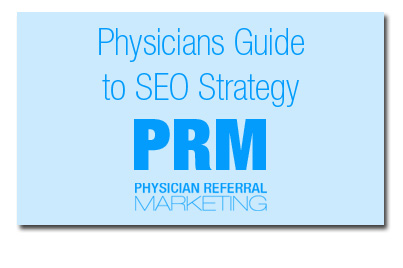

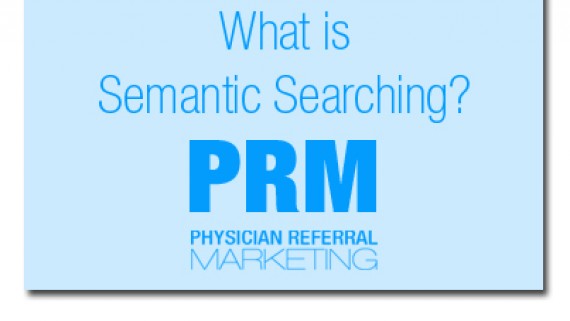
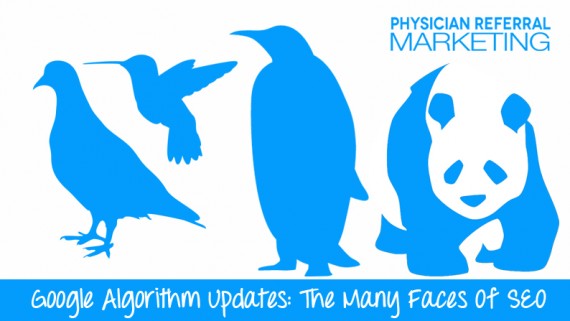

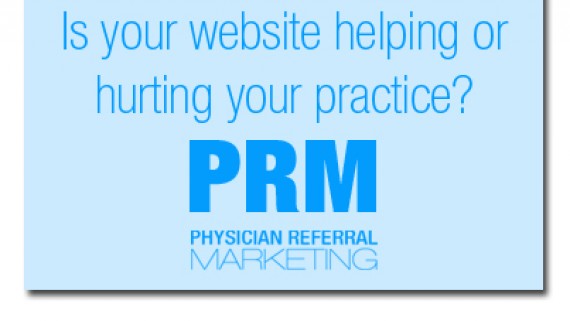

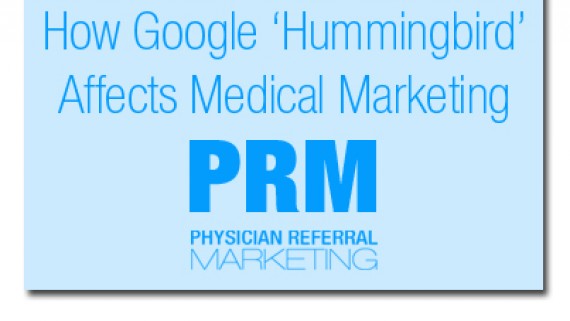

Not just applicable to physicians either! These components carry over to virtually every business out there.
Totally true Alex, as evidenced by what the team at SG is doing. 🙂
I’d like to see a comprehensive content marketing article next, as it was only briefly touched on it in this article. It’s such a big topic and deserving of so much more. How often should you update content? What sort of parameters are we looking at?
Hi Tony: those are all great questions, and I’ll do my best to address them in an upcoming article! In the meantime, feel free to call us if you’d like to hear more about PRM’s strategies and how they can impact your practice. 888-336-1344
Loved your article on semantic search, and this one is even better! I’ve always wondered about the purpose of social media, and seeing it in context on how it affects SEO makes a lot of sense. Thank you for the guide!
I’m glad you enjoyed it Arohi!